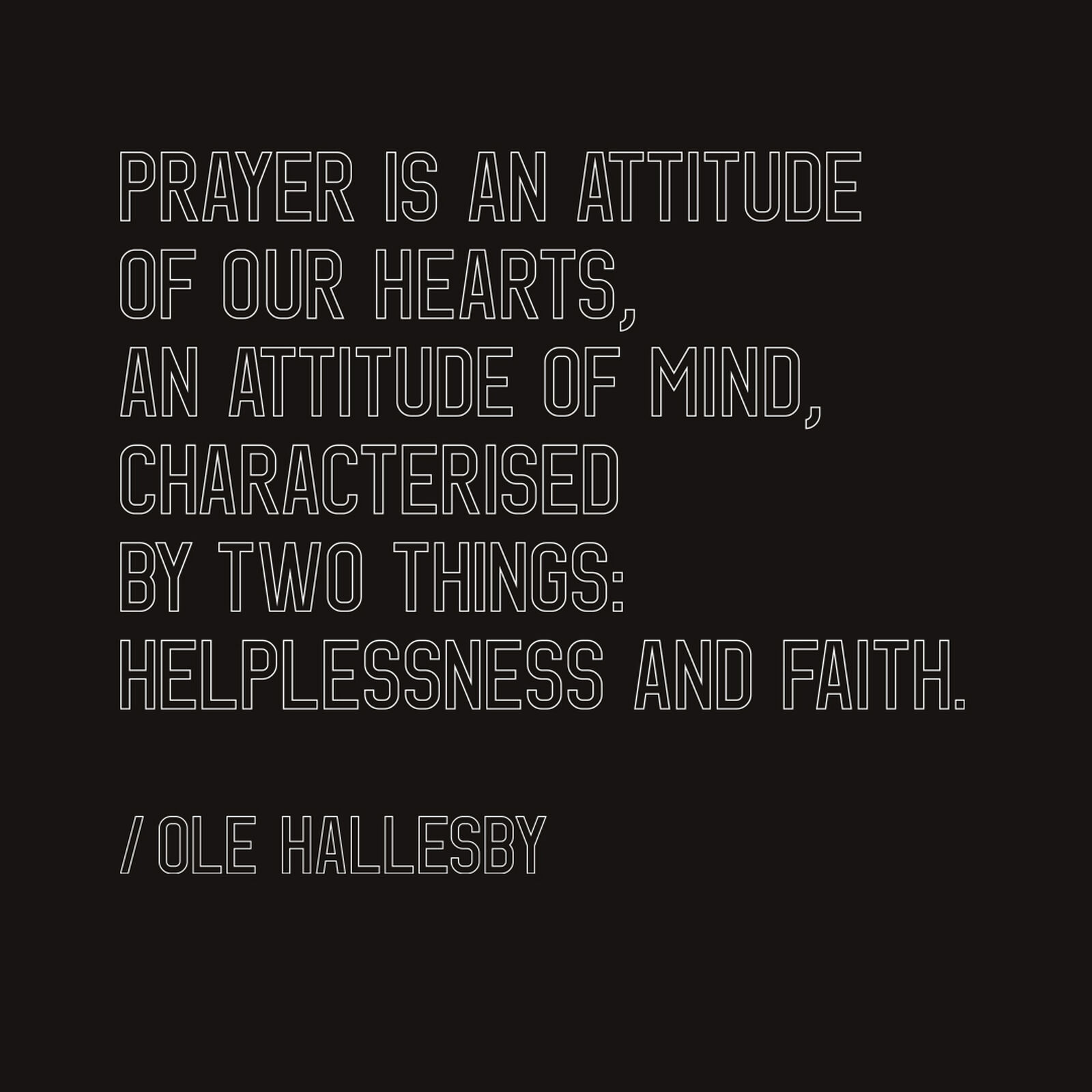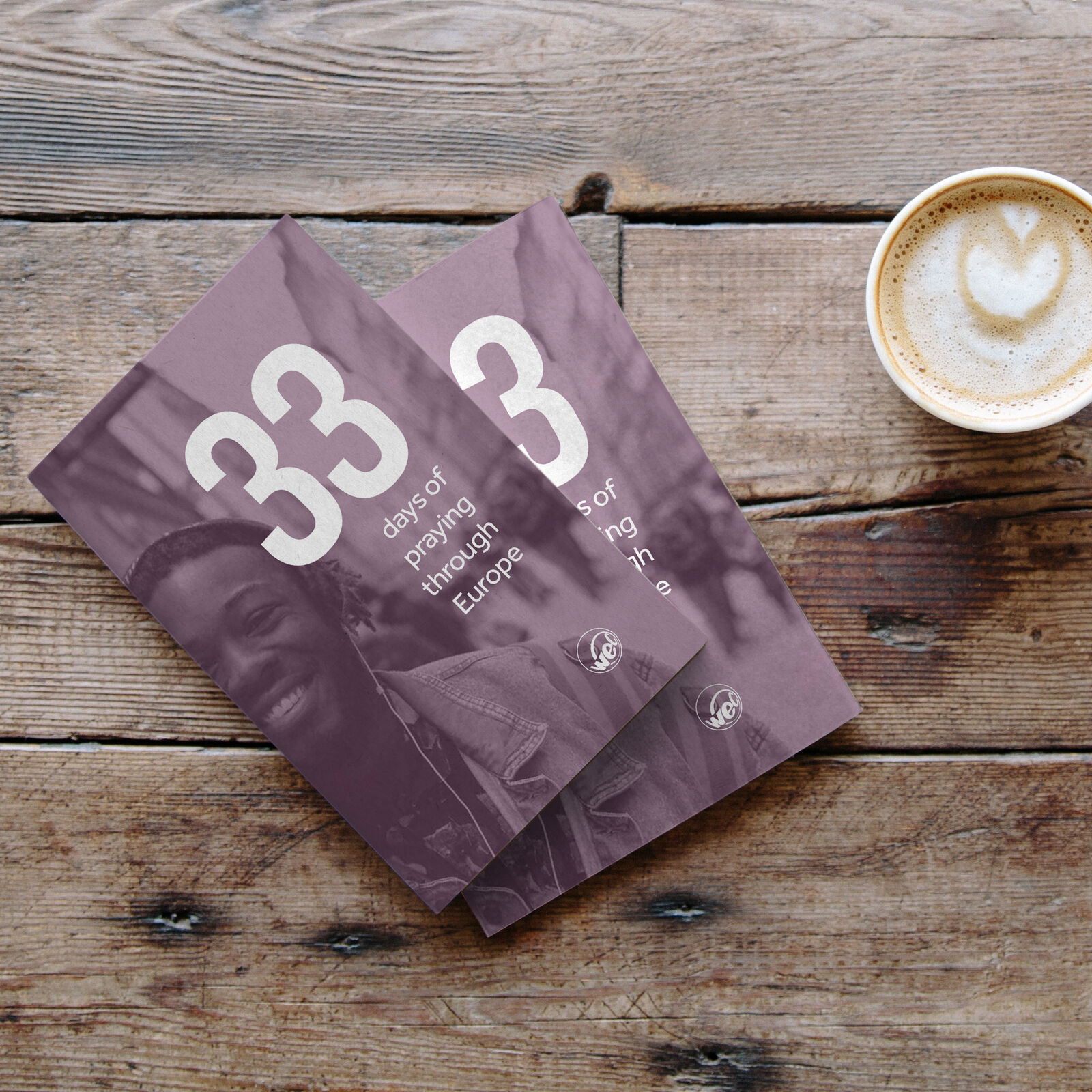If you were asked to define prayer, I wonder what you would say?
There are probably many good answers, but the one which I like the most, especially when I think of prayer in the context of missions, comes from one of the “classic” books on prayer, by the Norwegian theologian Ole Hallesby. He says, “Prayer is an attitude of our hearts, an attitude of mind, characterised by two things: helplessness and faith.”
Prayer consists simply of telling God, day by day, in what ways we feel that we are helpless – when we realise how powerless we are to change ourselves or the situations we face, or the state of this world. Our helplessness makes us more strongly dependant on him.
The second essential characteristic of prayer is faith. Without faith our helplessness would just be a desperate cry of distress without hope. But we pray because we have faith that God has the power to change us, our situation and the world.
In WEC we talk about prayer being a priority and integral to all we do. I think by this we mean that we recognise this constant dependence on the Lord and want to have that attitude of mind and heart that keeps us crying out to God, believing that he can give us the wisdom we seek, he can prepare hearts to receive the good news and he can provide all that is needed so that the unreached hear the gospel.
We also believe that we need others to stand alongside us in prayer. The reason that we share stories of struggles and difficulties is not so that people feel sorry for us – it is so that others will also cry out to God along with us.

“Prayer ... an attitude of our hearts, an attitude of mind ... helplessness and faith.” Ole Hallesby
Praying for Europe
In the last 250 years the gospel has advanced worldwide; however, today, it is declining in Europe. Many of the traditional European churches are empty edifices, filled with more dust than worshippers. According to Joshua Project, there are 448 unreached people groups in Europe: more than 25 million people. The highest number are in the UK, more than 5 million. But when we look at the percentage of the population that are unreached, Bosnia–Herzegovina has more than 50%, Kosovo more than 90%, and North Macedonia more than 30%. How will these people hear of Jesus unless we go and share the gospel with them? Europe is a place where they can legally hear the gospel without government or social interference. The unreached can be reached in Europe. They cannot easily be reached in Algeria, Pakistan or Turkey.
Reaching them needs intercessors
To intercede means to take the position of “going between”. The intercessor takes the position of standing between two opposing forces, eg between light and darkness, between despair and hope, between sickness and wholeness, between life and death, between chaos and order, etc.
The intercessor stands “in the gap”. “I looked for someone among them who would build up the wall and stand before me in the gap on behalf of the land so that I would not have to destroy it, but I found no one.” (Ezekiel 22:30)
Ole Hallesby, wrote that “it is by prayer that we join the powers of heaven to our helplessness, the powers which can turn water into wine and remove mountains in our own life and in the lives of others, the powers which can awaken those who sleep in sin and raise up the dead, the powers which can capture strongholds and make the impossible possible.”
Will you join us in praying for Europe, believing with us that through prayer we shall see the impossible made possible – a vibrant multiplying church among every people group with whom we are working?
33 days of praying through Europe. Download your guide here.

The unreached can be reached in Europe. Will you join us in praying?




